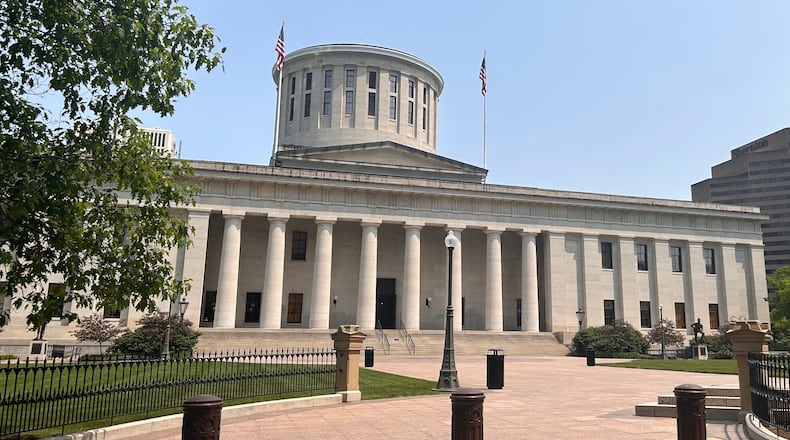The statement urged lawmakers to reject House Bill 36, which seeks to make nitrogen hypoxia a second legal method of execution besides lethal injection. Starting in 2018, Ohio Gov. Mike DeWine enacted de facto moratorium on lethal injections due to a supposed lack of drug availability. More than 40 people in Ohio await an execution date.
“We’re tired of the excuse that we cannot get the drugs to take care of these situations,” H.B. 36 joint sponsor Rep. Phil Plummer, R-Butler Twp., told the House Judiciary Committee earlier this year.
“This is about accountability. The people have already established (capital punishment) as the law, we’re just making another mechanism for us to hand out the punishment.”
There are eight states that allow for gas executions. In late January, Alabama became the first state to carry out a nitrogen hypoxia execution, and it has since used the method to execute two more prisoners.
The Office of the Ohio Public Defender said The United Nations Human Rights Office has warned that nitrogen hypoxia “could amount to torture and violate human rights treaties agreed to by the U.S.”
It further noted that in late 2022 the Ohio General Assembly passed a law that made it illegal to put down domestic pets via gas asphyxiation.
“This process can cause a person to gasp and struggle for air up to 15 minutes before suffocating to death,” the office said. “Now, some lawmakers want Ohio to follow suit and adopt this practice.”
More broadly, the office argued that the state’s capital punishment system is a poor crime deterrent, an inefficient use of public resources and out of favor with the majority of Ohioans’ views on executions.
The use of nitrogen hypoxia has been repeatedly advocated for by Ohio Attorney General Dave Yost, who submitted testimony last week in favor of H.B. 36.
“This committee can provide the means to carry out the law — or begin a repeal of the law," Yost said. “Either way you choose, let us have the moral courage to own our conviction. This current impasse of inaction demeans the very idea of representative democracy and the rule of law. It demeans us all.”
Capital punishment, and Ohio’s de facto moratorium on it, is one of the most notable fault lines running through the elected officials within the Ohio Republican party.
While plenty of GOP lawmakers signed on to support Plummer’s previous nitrogen hypoxia bill, it stalled in committee last year.
Earlier this year, one week after President Donald Trump called for a reinstatement of the death penalty across the country, Democrats and Republicans, including Sen. Steve Huffman of Tipp City and Rep. Adam Mathews of Lebanon, teamed up to call for the legislature to abolish the practice altogether in Ohio. Their subsequent bills have seen no action.
For Rep. Brian Stewart, R-Ashville, who has backed nitrogen hypoxia since Alabama’s first execution, H.B. 36 is anything but a debate on the policy of capital punishment.
“As long as capital punishment remains the law of the land, the law should be enforced and those sentences carried out,” he told the committee.
For more stories like this, sign up for our Ohio Politics newsletter. It’s free, curated, and delivered straight to your inbox every Thursday evening.
Avery Kreemer can be reached at 614-981-1422, on X, via email, or you can drop him a comment/tip with the survey below.
About the Author

